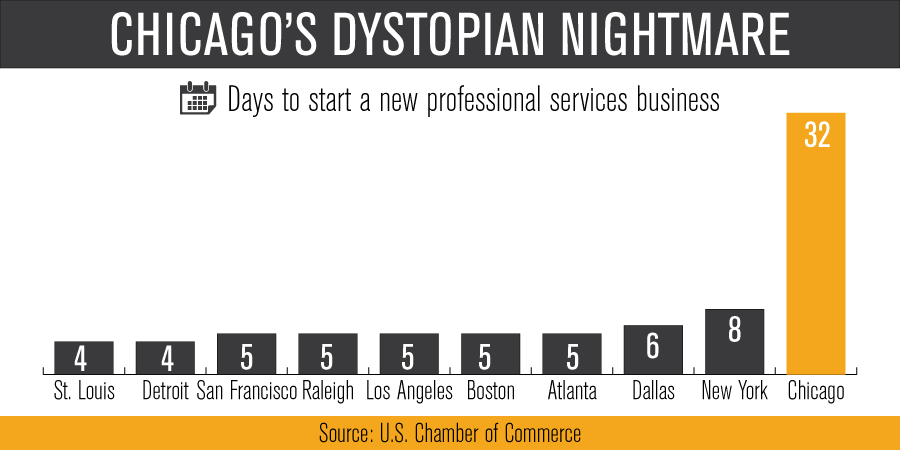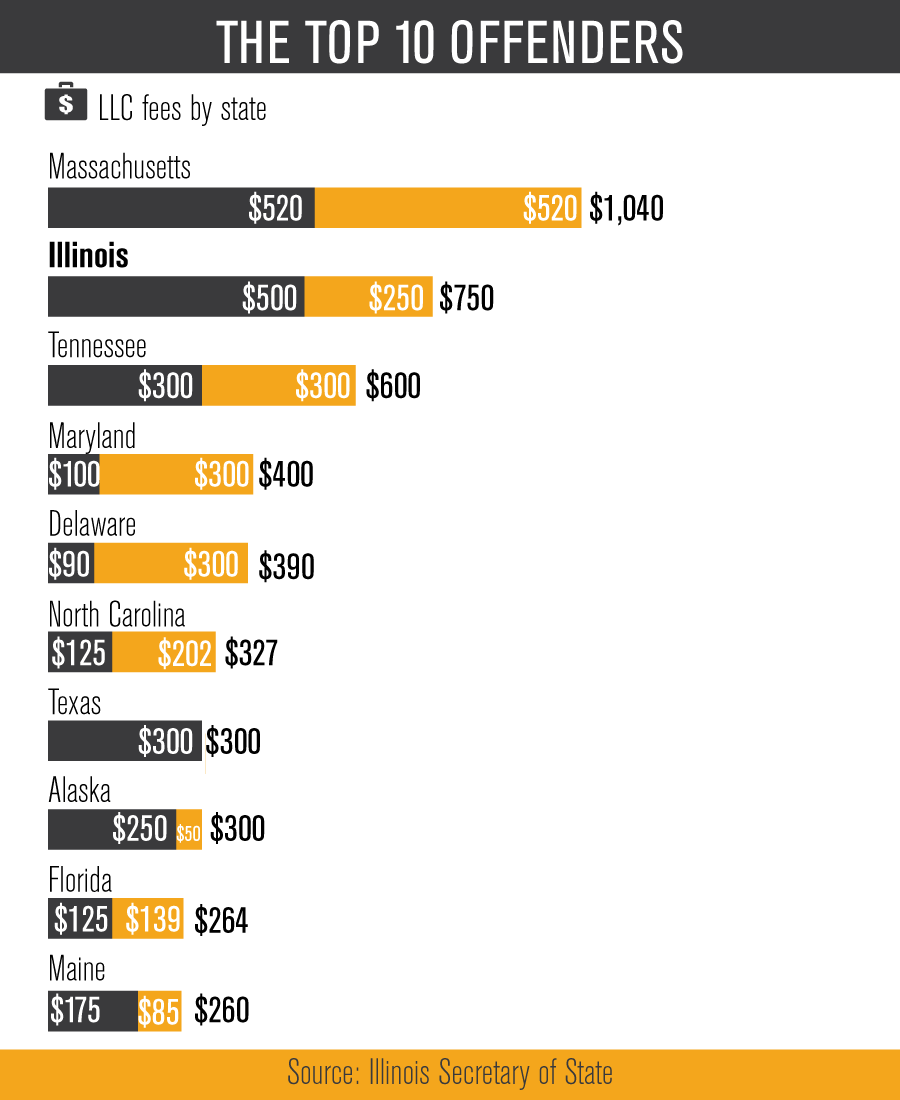Chicago a ‘dystopian nightmare’ for entrepreneurs
The U.S. Chamber of Commerce ranked the regulatory environment in 10 major U.S. cities, and the results aren’t pretty for Chicago. One writer described starting a professional services business in Chicago as a “dystopian nightmare.” Professional and business services make up 780,000 payroll jobs in the Chicago metropolitan area, a major part of current employment...
The U.S. Chamber of Commerce ranked the regulatory environment in 10 major U.S. cities, and the results aren’t pretty for Chicago. One writer described starting a professional services business in Chicago as a “dystopian nightmare.”
Professional and business services make up 780,000 payroll jobs in the Chicago metropolitan area, a major part of current employment and an area for future growth. But that growth isn’t being fostered. Starting a professional service business takes 32 days in Chicago, compared to eight days in the second-worst city, New York.
Chicago tacks on $900 in permitting fees, second only to New York at $1,300.
But then Springfield steps in to make things more expensive, adding another layer of costs.The state of Illinois charges $500 for a business to organize as a Limited Liability Company, plus another $250 in annual fees, the second-highest combined fee schedule nationally.
These fees are unnecessary, and should be reduced to the cost of filing paperwork. The average combined fee for Illinois’ neighboring states is $85. That’s less than one-eighth the cost of the same paperwork in Illinois.
Right off the bat, different levels of Illinois government pluck thousands of dollars from the pockets of local entrepreneurs, with little justification. And Chicago bureaucrats delay business openings for a month. The same operation in St. Louis has a four week head-start on their Chicago counterpart.
Chicago is a world-class city and should be the beacon of growth in the Midwest. But politicians give entrepreneurs plenty of reasons to look elsewhere.
Common sense reforms can be made by simply emulating other cities, slashing waiting periods, and reducing start-up fees. But until common sense reigns in Chicago, businesses will increasingly look to grow elsewhere.


